Regional Advisory Group:
Middle East (MEAG)
MEETINGS
 1st Joint Meeting at the 2010 Annual Meetings in Washington, DC
1st Joint Meeting at the 2010 Annual Meetings in Washington, DC
 Washington D.C. on April 26, 2010
Washington D.C. on April 26, 2010
 Two conference calls since
Two conference calls since
 Marrakech on October 13, 2009
Marrakech on October 13, 2009
MEMBERS:
Amat Al-ALIM ALSOSWA, Assistant Secretary-General of the United Nations

Amat Al-ALIM ALSOSWA, has been Assistant Secretary-General of the United Nations, Assistant Administrator of the United Nations Development Programme and Director of its Regional Bureau for Arab States since 2005. Prior to this, she served as Yemen's first Minister of Human Rights, Undersecretary in the Ministry of Information, and Chair of Yemen's first Women's National Committee. In addition she served in the Yemeni Ministry of Foreign Affairs from 2000 to 2003 as Ambassador to the Netherlands, Denmark and Sweden.
Her achievements have been recognized by many national and international public and private institutions, including the Government of France, which in 2004 awarded her the rank of Officier of the Ordre National de la Légion d'honneur, and the Washington-based National Democratic Institute, which presented her the 2004 W.
Averell Harriman Democracy Award. Alsoswa holds a B.A. in Mass Communications from Cairo University and an M.A. in International Communications from the American University in Washington, D.C.
Hamad Saud AL-SAYARI, Former Governor of SAMA
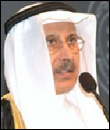
Hamad Saud AL-SAYARI, is the former governor of the Saudi Arabian Monetary Agency from 1983 to 2009. Mr. Al-Sayari holds a Master degree in Economics from University of Maryland, College Park, United States.
Jihad AZOUR, Vice President, Senior Executive Advisor, Booz and Co., Lebanon
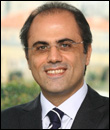
Jihad AZOUR, is Vice President – Senior Executive Advisor at Booz&co. He specializes in economic policymaking, public policy strategy, public-sector reform, public finance management, financial sector and central banking and overall economic development.
Prior to taking up this position, he was the Minister Finance of Lebanon for three years (2005 - 2008). Spearheaded the economic and financial program of the Lebanese Government, and coordinated the implementation of the various policies and reform initiatives. Led the preparation and the implementation of the Paris III International Donors Conference for Lebanon. Conducted a comprehensive modernization and reform agenda in the various departments of the Ministry of Finance. He also chaired the G8-BMENA Ministerial Group for 2006–2008, which regroups Ministers of Finance and Governors of central banks of the G8 and MENA countries.
He occupied senior positions in government, international organizations (project director of the UNDP/World Bank at the MoF), and the private sector (including McKinsey, Booz Allen Hamilton, Compagnie de Saint-Gobain). He also consulted for the IMF - FAD. He published several books and articles on economic and financial issues and has a long teaching experience at the American University of Beirut.
Jihad Azour obtained his PhD in International Finance from the Institut d'Etudes Politiques de Paris, in France. While completing his PhD, he served as post doctoral fellow at Harvard University's Department of Economics. Mr. Azour also holds a post-graduate degree (DEA) in International Finance and a Master's in Applied Economics from University Paris IX - Dauphine, France.
Ishrat HUSAIN, Dean and Director of the Institute of Business Administration in Karachi, Pakistan

Ishrat HUSAIN is a Pakistani banker and economist, who is currently serving as the Dean and Director of the Institute of Business Administration in Karachi. Formerly, Mr. Husain held the office of the Governor of the State Bank of Pakistan, Pakistan’s Central bank from 1999 to 2005. He also led the National Commission for Government Reforms for two years from May 2006. From 1979 to 1999 he served in various capacities at the World Bank—Country Director, Central Asian Republics; Director, Poverty and Social Policy; Chief Economist, East Asia and Pacific region; Chief Economist, Africa Region. Dr. Husain has a MA in Development Economics from Williams College and a Phd in Economics from Boston University.
Mohammed KABBAJ, President of Lafarge-Maroc and chairman of the “Spirit of Fez”, Morocco
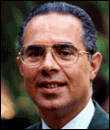
Mohammed KABBAJ is the President of Lafarge-Maroc and chairman of the “Spirit of Fez”, an NGO which organizes the Fes festival of world sacred music. During his career, he has served as wali of Casablanca, advisor to His Majesty the King Mohamed VI of Morocco, minister of finance and foreign investment, minister of public works, vocational and professional training, minister of equipment, and member of parliament.
From 1995 to 1997, Mr. Kabbaj chaired the development committee of the World Bank. Mr. Kabbaj is an engineer, graduated from the Polytechnic School of Paris and the French National School of Civil Engineering, and holds an M.A. in Econometrics from Sorbonne.
Marwan MUASHER, Vice President for Studies at the Carnegie Endowment, Washington, DC
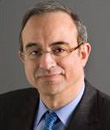
Marwan MUASHER is vice president for studies at the Carnegie Endowment, where he oversees the Endowment's research in Washington and Beirut on the Middle East. Muasher served as foreign minister (2002–2004) and deputy prime minister (2004–2005) of Jordan, and his career has spanned the areas of diplomacy, development, civil society, and communications. He is also a senior fellow at Yale University.
Muasher began his career as a journalist for the Jordan Times. He then served at the Ministry of Planning, at the prime minister's office as press adviser, and as director of the Jordan Information Bureau in Washington.
In 1995, Muasher opened Jordan's first embassy in Israel, and in 1996 became minister of information and the government spokesperson. From 1997 to 2002, he served in Washington again as ambassador, negotiating the first free trade agreement between the United States and an Arab nation. He then returned to Jordan to serve as foreign minister, where he played a central role in developing the Arab Peace Initiative and the Middle East Road Map.
In 2004 he became deputy prime minister responsible for reform and government performance, and led the effort to produce a ten-year plan for political, economic, and social reform. From 2006 to 2007, he was at the Jordanian Senate. Most recently, he was senior vice president of external affairs at the World Bank from 2007 to 2010. He is the author of The Arab Center: The Promise of Moderation (Yale University Press, 2008).
Nasser H. SAIDI, former Chief Economist and Head of External Relations of the DIFC, UAE
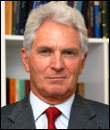
Nasser H. SAIDI is the former Chief Economist and Head of External Relations of the Dubai International Financial Centre (DIFC) authority and Executive Director of the Hawkamah-Institute for Corporate Governance at the Dubai International Financial Centre (DIFC). He is Co-Chair of the Organisation of Economic Cooperation and Development’s (OECD) MENA Corporate Governance Working Group. He served as the Data Protection Commissioner of DIFC in 2007. He was the Minister of Economy and Trade and Minister of Industry of Lebanon between 1998 and 2000. He was the First Vice-Governor of the Central Bank of Lebanon for two successive mandates, 1993-1998 and 1998-2003. He was a Member of the UN Committee for Development Policy (UNCDP) for two mandates over the period 2000-2006, a position to which he was appointed by former UN Secretary General Kofi Annan, in his personal capacity.
Prior to his public career, he pursued a career as an academic, including serving as a Professor of Economics at the Department of Economics in the University of Chicago, the Institut Universitaire de Hautes Etudes Internationales (Geneva, CH), and the Université de Genève. He also served as a lecturer at the American University of Beirut and the Université St. Joseph in Beirut. He holds a Ph.D. and an M.A. in Economics from the University of Rochester, USA, an M.Sc. from University College, London University, and a B.A. from the American University of Beirut.
Ghassan SALAMÉ, Dean of the Paris School of International Affairs/PSIA
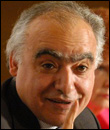
Ghassan SALAMÉ is the Dean of the Paris School of International Affairs/PSIA and professor of International Relations at Sciences-Po (Paris). Prior to that, Professor Salamé was Senior Advisor to the United Nations Secretary-General (2003-2006) and Political Advisor to the UN Mission in Iraq (2003). In 2000-2003, he was Lebanon’s Minister of Culture, in charge of national heritage and the arts; Chairman and Spokesman of the Organization Committee for the Arab Summit (March 2002) and of the Francophone Summit (October 2002) in Beirut.
Professor Salamé presently sits on the board and executive committee of the International Crisis Group and the boards of the Open Society Institute, The Bibliotheca Alexandrina, the Centre for International Conflict Resolution, the Center for Humanitarian Action, and a few other not-for-profit organizations. He is the founding chairman of the Arab Fund for Arts and Culture.
He studied Law (Saint- Joseph University and Paris University); Literature (PhD, Paris University); and Political science (PhD, Paris University). He taught international relations at the American and Saint-Joseph universities in Beirut and, later, at Paris University, and is the author of (inter alia) Quand l’Amérique refait le monde; Appels d'empire: ingérences et résistances à l'âge de la mondialisation; State and Society in the Arab Levant and editor (inter alia) of Democracy Without Democrats: Politics of Liberalization in the Arab and Muslim World; The Politics of Arab Integration and The Foundations of the Arab State.
